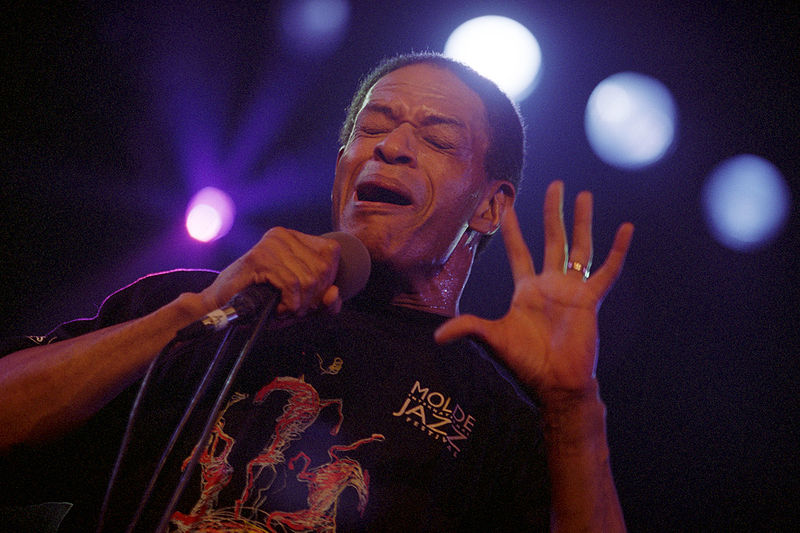Ella and Duke’s Place
The pair took jazz music into the stratosphere and their inspiration to musicians and listeners everywhere is awe inspiring

Ella Fitzgerald and Duke Ellington. Fitzgerald Photo: Public Domain/Lewin/Kaufman/Schwartz/Wikimedia Commons. Ellington Photo: Public Domain/Wikimedia Commons
The music world is all excited about celebrating World Jazz Day on April 30th. That wonderful ambassador of jazz piano, Herbie Hancock picked April 30th for this dedication. While I am completely in awe of Hancock, his music, his jazz acumen and his place in the upper echelons of the jazz hierarchy, I am baffled by his choice of April 30th for Jazz Day. After all, just one day before this, on April 29th is the birthday of the jazz granddaddy, Duke Ellington! If one had to pick a World Non Violence Day, would it not make sense to pick October 2nd, Gandhiji’s birthday and not October 3rd for that day? Hancock, I am sure had his reasons for not picking April 29th as Jazz Day, although I am not privy to his reasons.
Just ahead of April 30th, we have some wonderful reasons to celebrate and rejoice the birthday of the “First Lady of Song,” Ella Fitzgerald which was on April 25th and, of course April 29th, the birthday of Edward Kennedy “Duke” Ellington. Fitzgerald’s birthday is extra special this year; it is the 100th anniversary of her birth. The Duke would have been 118 on his birthday, approximately as old as jazz itself!
The significance of these two larger than life personalities goes far beyond the world of their beloved jazz music. Of course the great balladeer, Fitzgerald and the stupendous Ellington – master pianist, band leader, composer, arranger, spokesman, social leader and part of jazz royalty – represented the jazz firmament, but they were also the symbols of the African-American community. The emergence of this community from being a seriously oppressed part of American society to its present status owes much to jazz. As an instance, jazz bands at one time were strictly segregated. Then in around 1938, white clarinetist Benny Goodman incorporated pianist Teddy Wilson and vibraharp player Lionel Hampton, both African-Americans into his band for his famous Carnegie Hall Concert in 1938.
However, Ellington and Fitzgerald, both enormous personalities in the music and entertainment business had doors opened for their performances everywhere. The Duke has composed over five thousand jazz pieces! His famous orchestra played all over the world and were true ambassadors of jazz. This orchestra played under the Duke from the 1920’s right up to the 1970’s. Their India tour in the 1960’s is still remembered fondly by those who heard them. Ellington’s compositions included “C Jam Blues,” “I’m Just A Lucky So And So,” “Sophisticated Lady” and more. His compositions included influences from music everywhere. Among the many wise things he said, Ellington once mentioned, “There are only two types of music: Good and Bad!”
Fitzgerald was spotted by jazz bandleader, Chick Webb who invited her to sing in his band. Just a teenager at that time, she was very nervous on stage. So she was given a simple nursery rhyme to sing! “A Tisket A Tasket” was the song – and it became a hit, topping the charts for several weeks. Fitzgerald also experienced the business aspect of jazz; Webb died suddenly and Fitzgerald became the band leader. Having to balance the account books and handling the musicians in her band was a wizening experience, but thereafter she was happy singing in other bands!
Her most productive years of singing were between 1950 and 1965 or thereabouts. Her interpretations of the great American Songbook – music of Porter, Gershwin, Berlin, Kern, Ellington and others have no parallel in music. Her live recordings, her stellar singing in the series Jazz at the Philharmonic and countless studio recordings are likely to be a yardstick to measure performances of others in the future.
These two took jazz music into the stratosphere and their inspiration to musicians and listeners everywhere is truly awe inspiring. They, along with a handful of others have made jazz music a dominant contemporary art form. Let’s go out and celebrate Jazz Day and remember the pillars on which this art form has thrived.







